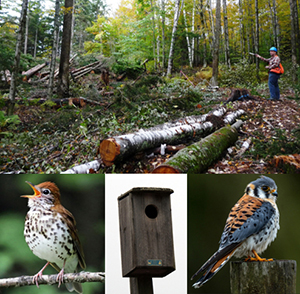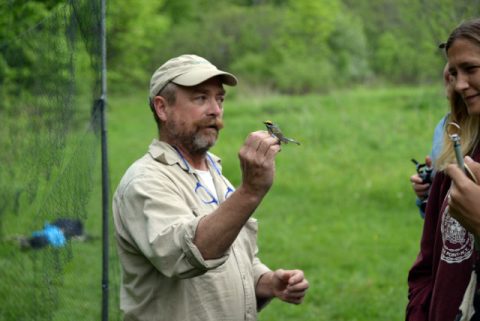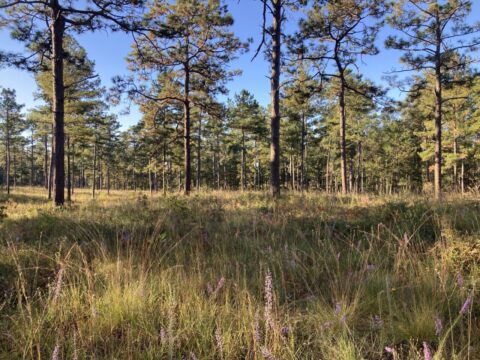Ag Allies Collaborative
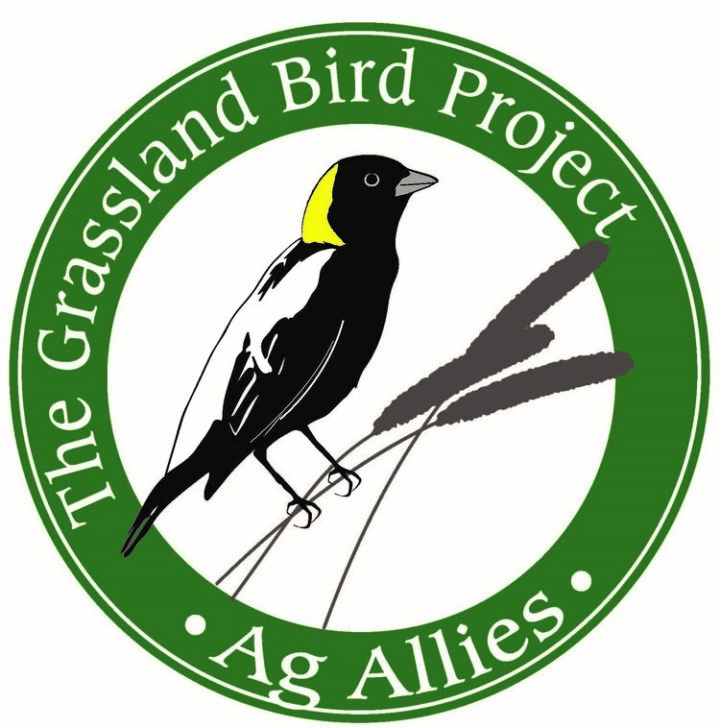
The Ag Allies Conservation Collaborative provides financial and technical assistance to landowners, land trusts, and partners for management changes that balance the needs of both birds and farmers – putting more grassland acres on the landscape for at-risk species, raising awareness about grassland bird declines, and educating about incorporating birds as part of holistic planning on working lands.
The Ag Allies Program, who leads this collaborative, is run by the Somerset County Soil and Water Conservation District (SCSWCD), working in conjunction with land trust partners, the Regional Conservation Partnership (RCP) Network, and the Cornell Lab of Ornithology through the Northeast Bird Habitat Conservation Initiative (NBHCI) in Maine. Ag Allies brings together government employees, Audubon groups, RCPs, land trusts, landowners, and farmers for the preservation of grassland habitat. The program seeks to empower landowners to make sustainable bird-friendly management changes on their land and improve the opportunity for nesting success of grassland birds.
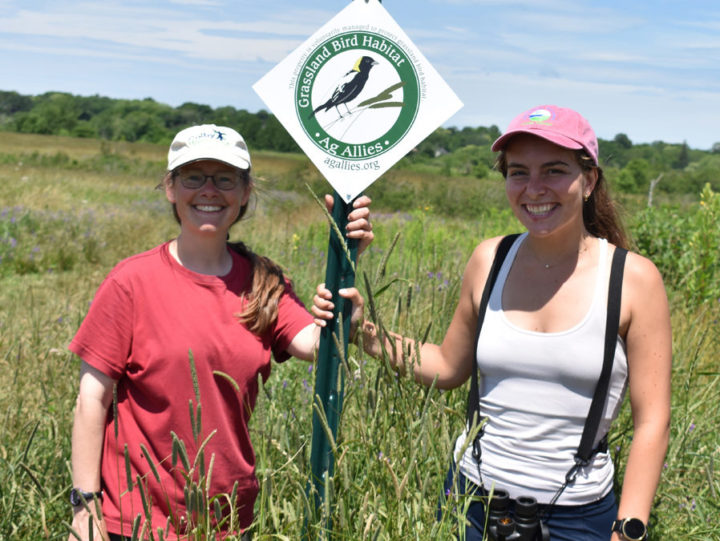
For more information about the program, contact Laura Lecker, SCSWCD and Ag Allies Program Manager.
To find out more about participating land trusts or how to get your land trust involved, contact Maeve McGowan, Land and Development Coordinator for the Kennebec Estuary Land Trust.
What Does the Collaborative Offer?
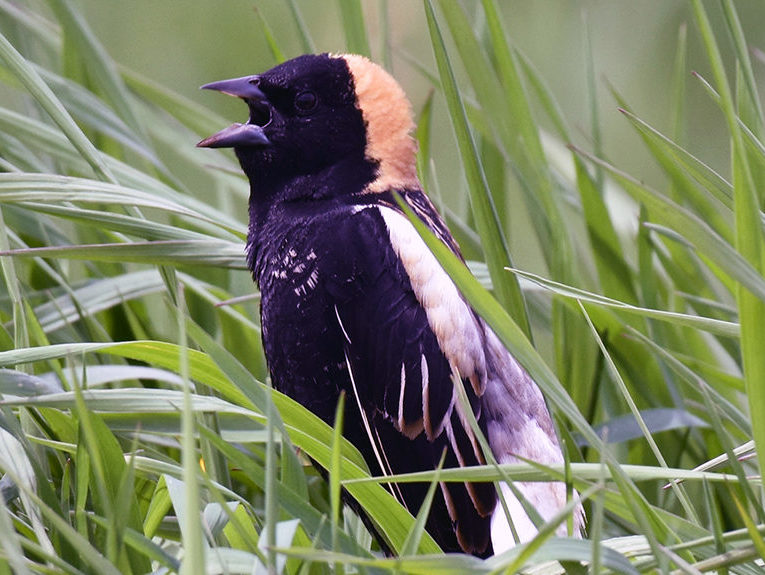
1) Technical advice to help incorporate delayed mowing into holistic farm management practices
Field site visits are key to helping find the best management practices for each farm. Since no two farms are alike, it is important to provide a variety of methods for integrating grassland bird habitat. Working with individual farmers and landowners requires flexibility and a variety of options for making room for grassland birds. If we can integrate grassland bird needs with the needs and goals of the farming operation, these changes can become a permanent part of their management plans. Ag Allies can also assist land trusts if interested in incorporating bird-friendly management language into conservation easements.
2) Farmer incentive payments to help offset the initial cost of the economic loss of delayed cutting
Incentive payments are a token of appreciation and crucial to the program to engage farmer participation. Our local farmers are pressed with many competing needs and uncertainties of prices and weather; thus, it is difficult for them to manage all of their forage production needs in the best of circumstances. The incentive payment provides important recognition of the potential burdens associated with an additional management concern and offers farmers bridge funding to account for time needed to integrate practices into their overall management plan.
3) Bird monitoring using tools such as the online checklist program eBird
Ag Allies personnel conducts bird monitoring using eBird to engage landowners, assess management outcomes, and help identify fields or portions of fields where grassland birds are present in greatest density. These density rich areas can then be targeted for a delayed mowing schedule. Careful monitoring allows farmers to get back in and harvest these fields as soon as fledglings are capable of sustained flight, and enables program managers to assess the efficacy of the management practices.
4) Demonstration sites for grassland habitat improvement
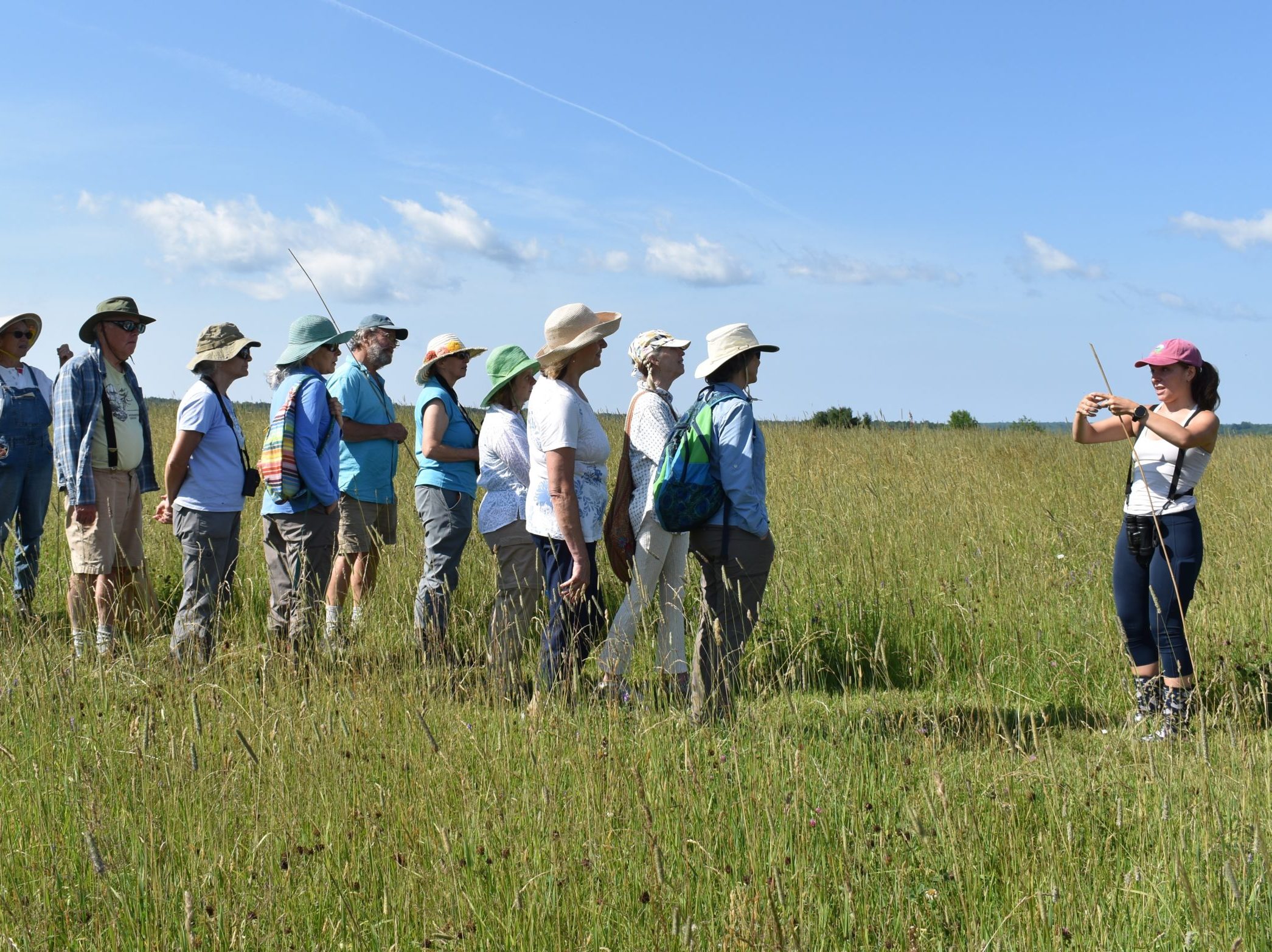
Many grasslands held by Maine’s land trusts have not been actively managed for forage production in recent years. With later, more sporadic mowing and lack of fertility management, these grasslands have declined in productivity as well as become less attractive for nesting grassland birds. Refurbishment demonstration sites may include bird population monitoring using eBird, assessment of fields, and implementation of best fit practices to restore quality nesting habitat, such as soils testing and analysis, lime and fertilizer application, and re-seeding and land smoothing. Demonstration sites are in areas with known nesting bird populations.
5) Field refurbishment and monitoring workshops, resources, and outreach assistance
Workshops are held for land trusts and the general public to showcase grassland bird behavior for determining safe mowing dates, to teach grassland management practices, and to train participants in the use of eBird for monitoring their fields. The program provides field signage to raise awareness and celebrate landowners’ support of grassland birds, and there are Grassland Bird and Habitat Conservation and Matching Livestock Nutritional Needs with Later Cut Hay fact sheets available on the Ag Allies website. The Ag Allies team is also available for presentations about grassland bird conservation in your community.
Ag Allies Conservation Achievements and Funding
Park Foundation Grant (2023) The Cornell Lab of Ornithology and Ag Allies Conservation Collaborative was awarded a grant to incorporate bird-friendly haying practices into farm management in Maine on over 1,200 acres and by reaching over 60 landowners to directly impact the massive bird declines occurring across our Northeastern grasslands and working farms. Ag Allies will work with landowners to modify mowing practices, empowering them to make sustainable bird-friendly management changes on their land and balancing the needs of both farmers and birds, and increase the nesting success of these birds through use of on-farm incentive payments, field restoration and management work, technical assistance, and outreach and education.
Sarah K. deCoizart Perpetual Charitable Trust Grant (2023) The Cornell Lab of Ornithology and the NBHCI, with Highstead’s support, was awarded another 2-year grant to build on year 1 and 2 outcomes and partnerships by showcasing our interactive mapping tool, teaching eBird, and increasing the pace and scale of bird-friendly forestry (with Audubon Vermont) and grassland management (through Ag Allies in Maine and the Virginia Grassland Bird Initiative in Virginia) and workshops within Regional Conservation Partnerships (RCP) on ecologically important lands for at-risk bird species in the Northeast and mid-Atlantic.
Cornell Land Trust Bird Conservation Initiative 25K Small Grant (2022) The Kennebec Estuary Land Trust (KELT) is expanding their existing partnership with Ag Allies to build collaborative relationships throughout Maine. After two years of this dynamic partnership, and six years since the creation of Ag Allies, this effort has protected and improved thousands of grassland acres habitat for breeding birds throughout the state. They will continue partnering with Maine land trusts, municipalities, and other organizations, and will develop and deepen strategic partnerships in surrounding states.
Sarah K. deCoizart Perpetual Charitable Trust Grant (2021) The Cornell Lab of Ornithology and the NBHCI, with Highstead’s support, was awarded a 2-year grant to train RCP leaders and partners to use eBird, eBird science data, and bird friendly forestry techniques, as well as support partners such as Audubon Vermont, Ag Allies, Mass Audubon, and RCPs with effective management implementation on ecologically important forests, grasslands, and farmlands for at-risk bird species in the Northeast.
Cornell Land Trust Bird Conservation Initiative 25K Small Grant (2021) The Kennebec Estuary Land Trust is partnering with Ag Allies to protect Maine’s grassland birds through the Expanding Grassland Bird Education and Conservation in Maine project focusing on utilizing Maine’s sophisticated network of land trusts and RCPs to inform grassland bird-friendly land management practices, building on their project from 2018.
Cornell Land Trust Bird Conservation Initiative 5K Small Grant (2018) Ag Allies, the Coastal Rivers Conservation Trust, and Maine Inland Fish and Wildlife Service promoted conservation of grassland birds throughout Maine’s agricultural landscapes by providing education and technical support to land trusts, farmers, and landowners to help implement bird-friendly practices on their farms with a specific focus on the Bobolink.



